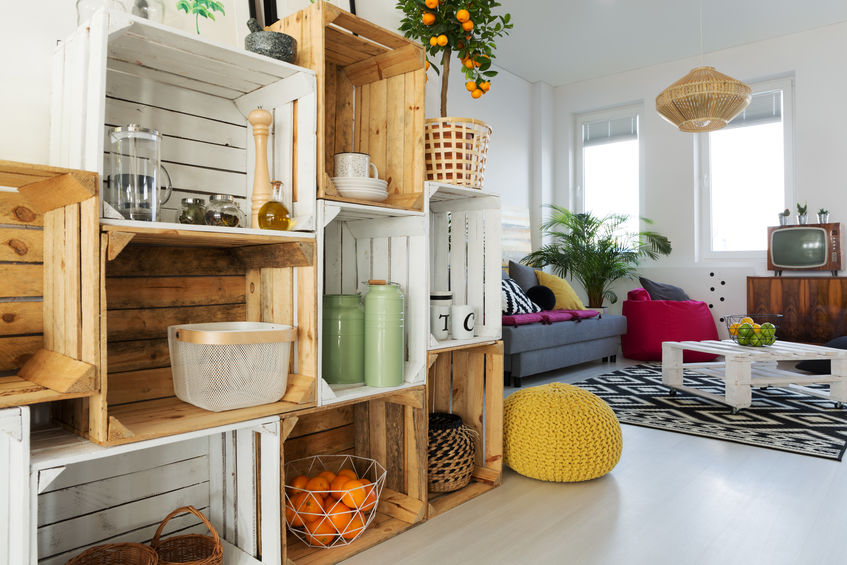
Mastering Organization: Key Habits and Practices for a Clutter-Free Life
In the chaos of daily life, staying organized can feel like an elusive goal. Yet, the benefits of maintaining order in our surroundings and routines are undeniable. From reducing stress and increasing productivity to fostering a sense of clarity and peace of mind, organization plays a pivotal role in our overall well-being. In this article, we'll explore a variety of strategies and habits to help you cultivate a more organized and efficient life.
Declutter Your Physical Space
A cluttered environment can contribute to feelings of overwhelm and disarray. Start by decluttering your physical space, beginning with one area at a time. Whether it's your desk, closet, or kitchen pantry, tackle each space methodically, sorting items into categories such as keep, donate, or discard. Be ruthless in your decision-making, letting go of items that no longer serve a purpose or bring you joy.

Once you've decluttered, establish systems for maintaining order. Invest in storage solutions such as bins, baskets, and shelves to keep items neatly organized. Designate specific homes for frequently used items, making it easy to find and put away belongings. Finally, commit to regular tidying sessions to prevent clutter from accumulating in the future.
Prioritize Your Tasks
A disorganized schedule can lead to procrastination, missed deadlines, and feelings of overwhelm. Combat these challenges by prioritizing your tasks and commitments. Begin each day by identifying the most important tasks that require your attention. Break larger projects into smaller, more manageable tasks, and allocate time blocks to work on them throughout the day.
Consider using productivity tools such as to-do lists, calendars, and task management apps to keep track of your responsibilities. These tools can help you stay focused, track your progress, and ensure that nothing falls through the cracks. Remember to be realistic about your time and energy levels, and don't hesitate to delegate tasks when necessary.
Establish Routines and Rituals
Routines and rituals provide structure and predictability to our days, reducing decision fatigue and increasing efficiency. Establishing consistent habits around daily tasks such as waking up, meal planning, and exercise can help streamline your routines and keep you on track. Set aside dedicated time each day for activities that contribute to your physical, mental, and emotional well-being.

Create rituals around tasks that you find challenging or overwhelming. For example, designate a specific day each week for meal prep or household chores to avoid feeling overwhelmed by these responsibilities. Incorporate moments of mindfulness and reflection into your daily routine to promote a sense of calm and presence amidst the busyness of life.
Streamline Your Digital Life
In today's digital age, managing digital clutter is just as important as organizing physical spaces. Start by decluttering your digital devices, deleting old files, emails, and apps that you no longer need. Organize your digital files into folders and subfolders, making it easy to find and access information when you need it.
Implement strategies for managing digital distractions, such as limiting your time on social media and turning off notifications during focused work periods. Consider using productivity apps and tools to automate repetitive tasks and streamline your workflow. Finally, back up important files regularly to prevent data loss and ensure that your digital information is secure.
Cultivate Mindfulness and Presence
At the heart of organization lies the practice of mindfulness and presence. Cultivate awareness of your thoughts, feelings, and surroundings, and notice how they impact your ability to stay organized. Practice being fully present in each moment, whether you're working on a task, interacting with others, or simply enjoying a moment of solitude.

Mindfulness can help you become more intentional about how you spend your time and energy, enabling you to make conscious choices that align with your values and priorities. Incorporate mindfulness practices such as meditation, deep breathing, or journaling into your daily routine to promote a sense of calm and clarity amidst the chaos of life.
Embrace Imperfection
Finally, remember that perfection is not the goal when it comes to organization. Life is messy and unpredictable, and there will inevitably be times when things don't go according to plan. Embrace imperfection and practice self-compassion when things don't go as expected.
Instead of striving for perfection, focus on progress and growth. Celebrate your successes, no matter how small, and learn from your setbacks. Organization is a journey, not a destination, and each step you take toward greater order and efficiency brings you closer to a more balanced and fulfilling life.
Conclusion
Mastering organization is a lifelong endeavor that requires commitment, patience, and practice. By decluttering your physical space, prioritizing your tasks, establishing routines and rituals, streamlining your digital life, cultivating mindfulness and presence, and embracing imperfection, you can create a more organized and efficient life. Remember that organization is not about perfection but about creating space for what truly matters and living with intention and purpose.







